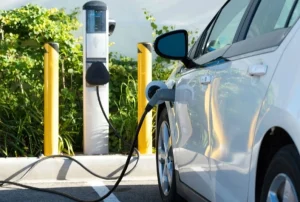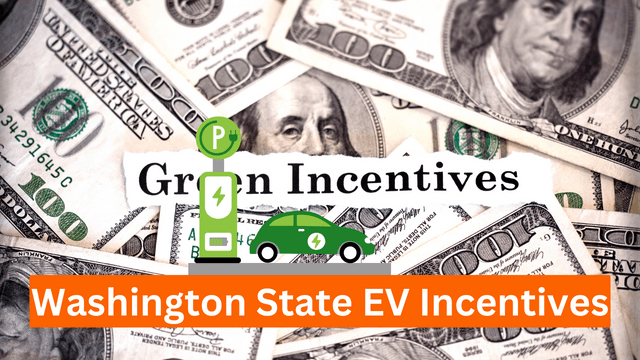This summer, Washington State plans to introduce a significant rebate program designed to increase the number of drivers who can afford electric vehicles (EVs). Governor Jay Inslee and the state Department of Commerce support this project, which encourages residents to switch from gasoline-powered automobiles to electric ones as a strategic step towards sustainability.

Program Overview
When leasing or buying an electric vehicle, drivers in Washington will be eligible for significant state rebates of up to $9,000 starting in August. This program is a component of the Democratic-led state-wide endeavor to lower its carbon footprint and encourage the state’s fossil fuel transition. In addition to being strategically important monetarily, the program aims to democratize the adoption of clean automobile technology.
Eligibility and Rebate Details
The program is tailored to benefit individuals and families based on income levels:
- Single Residents: Those earning up to $45,180 annually.
- Families of Four: Households with an income up to $93,600.
Rebates are structured as follows:
- $9,000 Rebate: Available for new electric vehicle leases of three years or more.
- $5,000 Rebate: Offered for new EV purchases or two-year leases.
- $2,500 Rebate: For used electric vehicles, whether purchased or leased.
How the Rebate Program Works
To illustrate the financial benefits, consider a typical scenario provided by the Department of Commerce:
A dealer offers a three-year EV lease at $239 per month, with $1,999 due at signing. The total cost amounts to $10,364.
With the $9,000 state rebate, the lease cost drops significantly to $1,364.
Additional costs include a $500 lease fee, a $200 documentation fee, and $734 for state and local transit, title, and registration fees.
The final lease amount totals $2,798, or approximately $78 per month over the 36-month term.
Goals and Impacts of the Rebate Program
Governor Inslee stated that the main objective is to increase the accessibility of electric vehicles while highlighting the ease of use and ecological advantages of eliminating the need for petroleum purchases. Director of the State Department of Commerce Mike Fong called the program a “first-in-the-nation model,” emphasizing that other states might use it as a model.
Broader Incentives and Market Trends
Federal tax credits of up to $7,500 are available for electric and plug-in hybrid vehicles, subject to specific requirements linked to manufacturing and material procurement, in addition to state rebates. With the integration of these incentives with the state’s rebates, qualifying consumers may be able to lower their monthly lease costs for some EV models to less than $100.
Even with these incentives, Washington still has a low rate of electric vehicle adoption; as of March, there were just 181,400 registered EVs, or a tiny percentage of all automobiles in the state. The market is still skewed geographically toward metropolitan areas like Seattle and toward higher-end models like Teslas.
Challenges and Future Directions
A major infrastructure investment has been made with the installation of about 5,000 new EV charging stations, tackling a major obstacle to EV adoption: a lack of charging stations, particularly in rural areas. Furthermore, there are still issues with battery performance in colder climes, which points to areas that require more technological breakthroughs.
The innovative new EV rebate scheme from Washington State not only encourages environmental sustainability but also provides customers with significant financial advantages. The state hopes to lower overall carbon emissions and hasten the adoption of more environmentally friendly transportation choices by lowering the financial barrier to owning an electric vehicle.
Frequently Asked Questions (FAQs)
Who is eligible for the EV rebates in Washington?
Eligibility is based on income levels, with specific caps for single residents and families. Additional details are provided by the Department of Commerce.
How much can I save through this rebate program?
Savings can be as high as $9,000 for new EV leases of three years or more, with different rebate amounts for new purchases and used EVs.
When does the program begin?
The rebate program is set to start in August at participating auto dealerships across Washington.
Can I combine these rebates with other incentives?
Yes, these state rebates can be combined with federal tax credits and possibly other automaker incentives, maximizing affordability.
What are the concerns related to EV adoption in Washington?
Challenges include the density of charging stations, especially in rural areas, and the performance of EV batteries in cold weather.
Washington’s rebate program has the potential to significantly alter the state’s transportation scene and act as a national model for sustainable practices because it tackles both environmental and economic issues.



